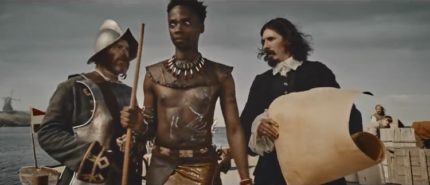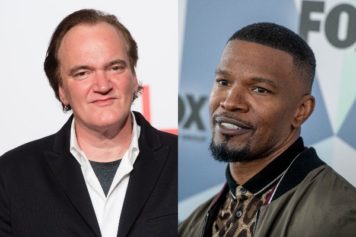With Ebay banning the ‘Django Unchained’ action figures, and stores refusing to carry the “toys” people will have to resort to desperate measures to get their hands on the six doll set. The dolls were constructed under the direction of The Weinstein Company, the same company that produced the film. After a backlash from people such as Spike Lee and Al Sharpton, the film company discontinued production on the items; sending the price for the remaining figures into the four digit price range.
In fact, after the ‘Django Unchained’ action figures were pulled from the shelves, the price of the item on eBay reached almost $2000 for the complete set of six. Deciding to stand on moral high-ground, eBay executives banned the toys citing them in violation of their offensive-materials policy. What that policy states, basically, is products that “promote or glorify hatred, violence, racial, sexual or religious intolerance, or promote organizations with such views” are to be banned from the site.
Is the backlash against everything and, seemingly, everyone associated with ‘Django Unchained’ a bit racist, though? Had a black man like Spike Lee made this film instead of a white man like Quentin Tarantino; would civil rights groups, activists and leaders have as much to say about it? Or it is the color of Tarantino’s skin that’s causing most of the upheaval?
When is the last time you saw a trailer for a movie about slavery? When is the last time that you saw a trailer for a movie giving a creative spin on a deplorable event in American history? Many audience-goers probably couldn’t name a ‘black’ movie being produced that didn’t have Tyler Perry’s name attached. With such a lack of weighty stories being told about black history by black filmmakers, is Tarantino’s unique take on a horrific historical time truly offensive?
Kerry Washington, who plays the film’s heroine Broomhilda, told Vibe magazine that Tarantino made sure the writers thoroughly researched every aspect of their story in order to remain truthful to the brutality that was a fact of life during that time period. “…But I remember there was this one moment in the script where Jamie’s character was put in an awful crazy medieval metal mask. I said, ‘‘That’s some sick thing Quentin thought up.” And when I went to the production office to meet about my wardrobe, I saw into the research office. Twenty photos of real masks like that. It made me sad.”
Washington continued, “I realized as much as my degrees and everything I’ve read on slave narratives [should have informed me], I didn’t even know that they wore masks like that, that people did that to us. It took a Tarantino movie for me to know that that’s not some crazy thing out of his imagination. That’s how it went down.”
All the backlash against film and everything associated with it begs the question: Who is allowed to report on the black experience? Can non-black people do justice to an awful event (such as slavery) that is unique to black Americans? With all the negative hoopla surrounding ‘Django Unchained’, the answer, sadly, still seems to be no.


